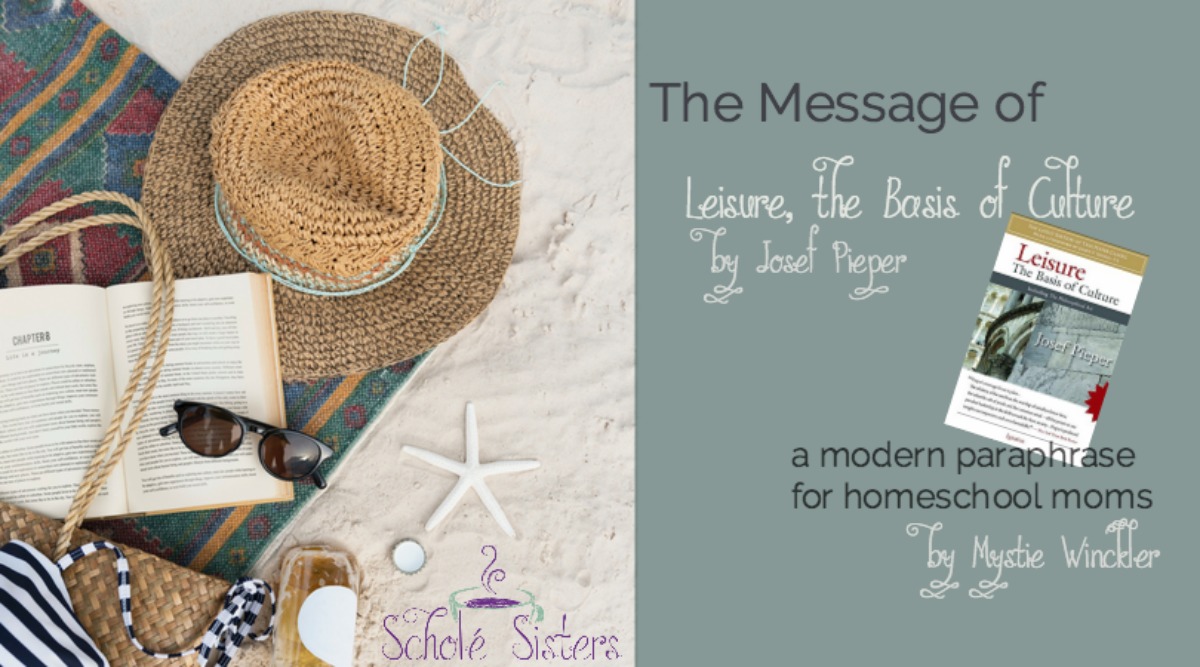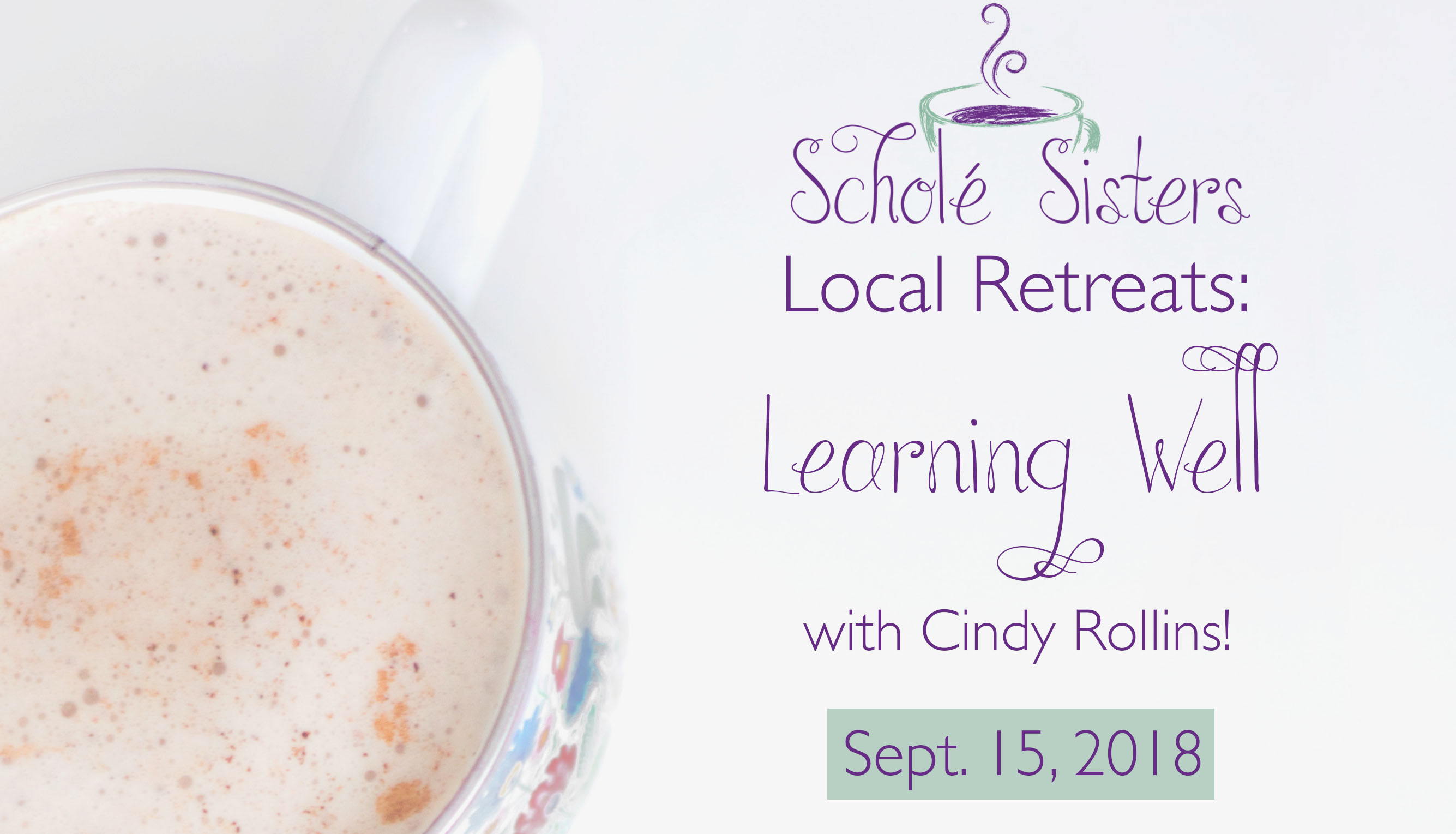The Message of Leisure & Scholé: Chapter 2, part 3 – The leisure to be free
As a summer special, Scholé Sisters is publishing a blog series through Josef Pieper’s Leisure, the Basis of Culture. This is the book that brought scholé back into our vocabulary. Instead of writing about the book or writing additional commentary, however, we’re taking a thought-by-thought paraphrase approach, chapter-by-chapter. Like The Message is to the Bible, so this series is to Leisure: common idiom, loose paraphrase, with some clarifications and connections and elaborations added for the reader’s benefit. Enjoy!
Previously: Chapter 2, part 2 – Effort is not virtue

What is freedom? How can it be found?
If our culture’s god is its Economy, and our priorities, values, and even identities are filtered through that frame, we lose our freedom.
If our actions are always seen in terms of what they produce in the world, of their monetary value or their outcomes, there is no longer such a category as free activity.
Free, in this sense, has less to do with personal choice and more to do with the ability to choose – even the ability to recognize activities that do not serve a worldly function.
“What’s the use?!” both we and our children cry, as if that closes the case.
When we say “use,” in this sense, we’re not talking about “good” – which would be a more traditional view – but about the likelihood of gain. We don’t ask about the inherent worth of a thing, but rather its use. That is, what will we get out of it? How will the society benefit from it? How will it fit into our five-year plan for success?
This perspective never sees value in activity or knowledge alone, but sees the value as always arising from the result that the activity or knowledge produces.
So, it’s not about whether or not math is true, good, or beautiful and therefore worth pursuing and knowing, but about having the ability to balance checkbooks, get a good job, and pass the test. Math is valued for the results we get, not for being a Good Thing apart from being useful.
But the liberal arts are, in fact, called liberal because they have value apart from use – they are both free and freeing. They are free from serving the marketplace and those who study them are elevated above a slavish, functionary role.
The opposite of a liberal art is a servile art. In Aristotle’s framework, a servile art is good and necessary, but the distinction is that they are not good in themselves. The servile arts’ true value is in the result they produce. Factory work is not true, good, or beautiful in itself. We derive good from the results of factory work, not by the process. Should machinery take it over, humanity does not lose an aspect of itself. The results remain – the produced goods – and that’s what matters.
Not so with a liberal art. A liberal art cannot be replicated by or fulfilled by a machine, because they are human arts. Humans can be aided by tools, but the pursuit of knowledge for its own sake and not to produce goods or gain power makes the study truly liberal, truly free.
The liberal arts are free because no useful result in the world is needed to make them worth pursuing. However, when we call someone a “knowledge worker,” suddenly we shift the purpose of the knowledge. It is no longer worthwhile in itself, but on the work, on the product, on the result created.
Science, as it is used and considered today, is focused on application, on technology, on giving us increasing advantage over creation. Our science is servile, not free.
The free studies are philosophical in nature. They consider the nature of things not in order to take advantage or control, but in order to know and understand. Sure, first our scientists might seek to know and understand, but if they are doing it so that they can find a cure for cancer, build a faster iPhone, or turn a boy into a girl, the knowledge is not philosophical, not free, not scholé. It is utilitarian, practical, servile.
Education, historically, has been in the liberal arts whereas the servile arts were taught through training. Today we have much training and very little education. Education seeks a holistic, unified understanding of the world. It wants to know about the world as a whole, about people as whole beings – for the sake of finding truth, for the sake of conforming to goodness, for the sake of loving created beauty.
Now, of course technology and practicality and work are not bad. It’s just that they aren’t all there is to life.
We often say we want balance, but we can’t balance something we don’t have. And today, we don’t have true leisure. The only alternative to work that we know is idleness or entertainment and so our idea of “self-care” is chocolate and a movie instead of a walk in silence or reading Scripture prayerfully or losing ourselves in an interesting book.
Our souls do need care, but the care that they need is spiritual. Don’t look to material things to sooth your soul.
We will never be fulfilled by useful work alone. We need meaning beyond ourselves. In the past, that is why the liberal arts were prioritized. Through them, we can get to know what is beyond our selves and come to understand deeper meaning and connection.
The liberal arts were considered the education fit for a gentleman. That is, even someone who didn’t have to work for a living benefited by them. The benefit was not in anything being produced; the benefit was in the knowing itself. If anything at all was being produced, it was a certain kind of human: a free, whole, mature human.
Applying even the liberal arts to life, using our knowledge in practical ways is surely necessary. Virtue, after all, is living in accordance to what you know. It’s practical. However, the impractical, the principles, the philosophy must come first if we are to have rightly ordered lives and a lasting culture.
There is more to this life than what is useful.
There is also blessing.
Are we willing to receive blessing? Are we willing to set aside our productivity in order to seek blessing?
Then we must have the leisure to do so.
Learn leisure with us this September:


2 Comments
Comments are closed.